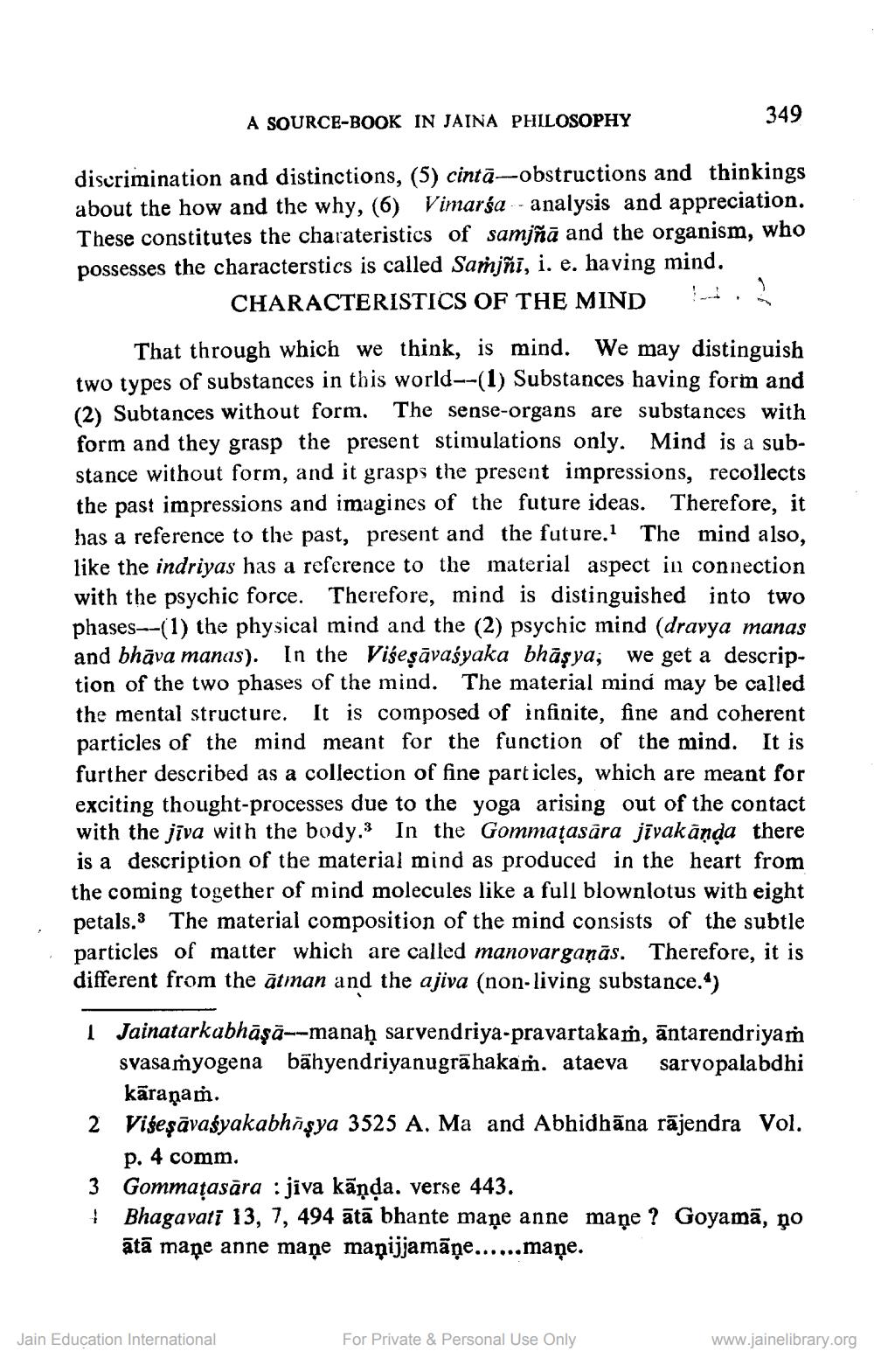________________
A SOURCE-BOOK IN JAINA PHILOSOPHY
349
discrimination and distinctions, (5) cintā--obstructions and thinkings about the how and the why, (6) Vimarsa - analysis and appreciation. These constitutes the charateristics of samjñā and the organism, who possesses the characterstics is called Samjñi, i. e. having mind.
CHARACTERISTICS OF THE MIND a .
That through which we think, is mind. We may distinguish two types of substances in this world--(1) Substances having form and (2) Subtances without form. The sense-organs are substances with form and they grasp the present stimulations only. Mind is a substance without form, and it grasps the present impressions, recollects the past impressions and imagines of the future ideas. Therefore, it has a reference to the past, present and the future. The mind also, like the indriyas has a reference to the material aspect in connection with the psychic force. Therefore, mind is distinguished into two phases---(1) the physical mind and the (2) psychic mind (dravya manas and bhāva manas). In the Viseşāvaśyaka bhāşya; we get a description of the two phases of the mind. The material mind may be called the mental structure. It is composed of infinite, fine and coherent particles of the mind meant for the function of the mind. It is further described as a collection of fine particles, which are meant for exciting thought-processes due to the yoga arising out of the contact with the jīva with the body. In the Gommațasāra jīvakānda there is a description of the material mind as produced in the heart from the coming together of mind molecules like a full blownlotus with eight petals. The material composition of the mind consists of the subtle particles of matter which are called manovargaņās. Therefore, it is different from the ātman and the ajiva (non-living substance.)
| Jainatarkabhāşā--manaḥ sarvendriya-pravartakam, āntarendriyas
svasamyogena bāhyendriyanugrāhakaṁ. ataeva sarvopalabdhi
kāraṇam. 2 Višeşāvaśyakabhäşya 3525 A. Ma and Abhidhāna rājendra Vol.
p. 4 comm. 3 Gommațasāra : jiva kāņda. verse 443. | Bhagavati 13, 7, 494 ātā bhante maņe anne maņe? Goyamā, no
ātā maņe anne maņe mapijjamāņe......maņe.
Jain Education International
For Private & Personal Use Only
www.jainelibrary.org




